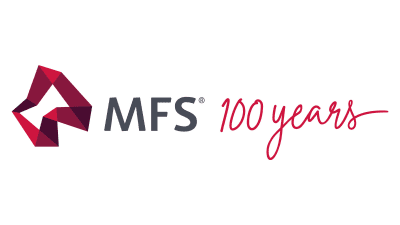Microcap and small company research lifts Aussie equity fees



Resources put into intensive research has boosted fees for Australian equity funds focused on microcaps, Jassmyn Goh finds. This is part two of the fee comparator feature.
Microcap and smaller company funds have topped the fee charts when it comes to Australian equity funds, according to FE Analytics data.
The data found that the Acorn Microcap Fund had the highest annual fee charge at 2.53 per cent, followed by Australian Ethical Australian Shares Fund at 2.5 per cent, SGH Micro Cap Fund at 2.15 per cent, Australian Ethical Emerging Companies Fund at 2.2 per cent, and Advance Australian Smaller Companies Multi Blend Fund at 2.15 per cent.
Australian Unity said its Acorn fund was an actively managed fund with an intensive research process and that this process contributed to their fee reasoning.
Australian Unity’s general manager of investments, Geraldine Barlow, said the microcap sector comprised of companies that were not well represented on the ASX 250 and was largely made up of developing companies, that either were not yet generating revenue or were very early in their revenue generation.
“Understanding and assessing the prospects of such companies requires a much deeper research process as information is not readily available to assess like it is with the larger companies on the ASX,” Barlow said.
Barlow said the unique part of the fund was the skillset the team brought in their bottom-up research of each of the stocks, and that it had remained true to its sector neutral approach since inception.
She noted that the fund has been closed to new investment since June 2013.
Performance wise, the fund has outperformed its Acorn Capital/AGSM Microcap Index over 10 years to 31 July 2017 at 0.11 per cent, compared to -1.75 per cent.
“Given the nature of microcaps, this fund is classified as high risk and it can and does experience significant volatility. As such, this is a long-term investment with a recommended investment timeframe is long at seven years plus,” Barlow said.
“Recently the microcap sector has also been impacted by what is termed the ‘great rotation’. This is where large cap managers have added some small/microcap exposure to their portfolios looking for EPS [earnings per share] growth and have then rotated out of the sector.
“This rotation out of microcap names back into large cap names has led to a broader sell-off in microcaps.”
She noted that many institutional clients were making the sector rotate out of microcaps, resulting in further downward pressure on prices.
“These rotations do occur from time to time in the microcap space and investors should expect volatility. However, the rotation can open up good buying opportunities for skilled managers and for investors comfortable with the risk of investing in microcaps,” she said.
On Australian Ethical’s Australian Shares Fund and Emerging Companies Fund, the firm said its fees were based on the cost of servicing its clients as most of their funds under management (FUM) and flows went into their wholesale offering.
Australian Ethical chief investment officer, David Macri, said the firm was committed to keeping their retail offering open and to give their investors and potential investors a choice if they had less than $25,000 to invest as they were “not going to shut them out of this option”.
Macri said the costs included servicing clients, onboarding clients, marketing, obtaining legal documents, producing the product disclosure statement (PDS), prospectus, and so forth.
“We think it’s a bit elitist to say ‘if you’ve got more than $25,000 you can invest in our fund and if you have less forget about it we don’t want your money’,” he said.
“At the same token, we don’t want to lose money in managing a product. Some of these retail funds are very small and that’s exactly why the fees are that high.”
Macri noted that the firm did not have the same scale and distribution channels as the banks nor did it have it’s own platform.
He also said that there was an extra cost in establishing their investment universe due to their ethical charter driving their investment process.
On the investment side, he said the Australian Shares Fund strategy was based on stock picking to generate significant alpha.
“We’ve built a track record against picking both stocks in the right sectors particularly within small caps, we’ve managed to generate a lot of alpha in that fund,” he said.
The fund’s performance reflected this by beating the sector average over three years to 31 July 2017 at 12.59 per cent, five years at 15.44 per cent, and 10 years at 7.32 per cent.
On the firm’s Emerging Companies Fund, Macri said it was “based on the success of the Aussie shares fund, we think we have inherent skills in buying outperforming small caps stocks and that’s where the fund came from, and that fund has a performance fee”.
While the fund is only two years old it outperformed the benchmark over the two years to 31 July 2017 at 12.08 per cent (compared to 10.21), and one year at 6.93 per cent (compared to 0.93 per cent).
Similar to the Acorn fund, the SGH Micro Cap Fund’s fee strategy was a result of their research into true microcap stocks.
SG Hiscock and Company’s chair and managing director, Stephen Hiscock, said many microcap funds had fund sizes much larger than theirs which SGH believed meant that they were not investing in true microcap/startup companies, or they had taken in too much money which would pose a problem with liquidity if they needed to sell down their holdings rapidly.
“The flip side of having such a small and nimble fund is that fees need to compensate the manager for their investment time, and research, and obviously cover the other costs, hence why the fee is 2.15 per cent,” he said.
“Because the fund also looks at pre-IPO [initial public offering], and unlisted investments, the fund is actually a low risk way to get exposure to private equity and venture capital type deals – and compared to those sorts of fund structures, which often also have lock-ups, the fees are reasonable, even low.”
While Hiscock said while last year was a tough year for microcaps, his fund had a minimum investment timeframe of five or more years.
The fund has overall performed similar to the benchmark over the past five years with a five year to 31 July 2017 cumulative return of 67.98 per cent, compared to 73.73 per cent.
Since around the Global Financial Crisis (GFC), BT Financial Group’s Advance Australian Smaller Companies Multi Blend has consistently performed below its benchmark. The fund returned 0.1 per cent over one year to 31 July 2017, 4.86 per cent over three years, 5.83 per cent over five years, and -1.11 over 10 years.
BT declined to speak to Money Management about their fee and investment strategy but provided a written statement that said its fund was closed to new investors and that “across the industry there are a range of fee structures that were developed to reflect the different arrangements and areas of demand that were relevant at the time of investment”.
“Often these older retail funds are relatively small compared to the currently available options, but are maintained by their providers to ensure investors can continue to hold their investment if they choose,” the statement said.
FE Analytics found the Australian equity funds with the lowest fees and the highest performance were Franklin Templeton Australian Equity W, CFS Realindex RAFI Australian Share-Class A, Lazard Australian Equity I, Allan Gray Australia Equity A, and Macquarie Australian Equities.
Recommended for you
Marking off its first year of operation, Perth-based advice firm Leeuwin Wealth is now looking to strengthen its position in the WA market, targeting organic growth and a strong regional presence.
In the latest edition of Ahead of the Curve in partnership with MFS Investment Management, senior managing director Benoit Anne explores the benefits of adding global bonds to a portfolio.
While M&A has ramped up nationwide, three advice heads have explored Western Australia’s emergence as a region of interest among medium-sized firms vying for growth opportunities in an increasingly competitive market.
Private wealth firm Escala Partners is seeking to become a leading player in the Australian advice landscape, helped by backing from US player Focus Financial.











